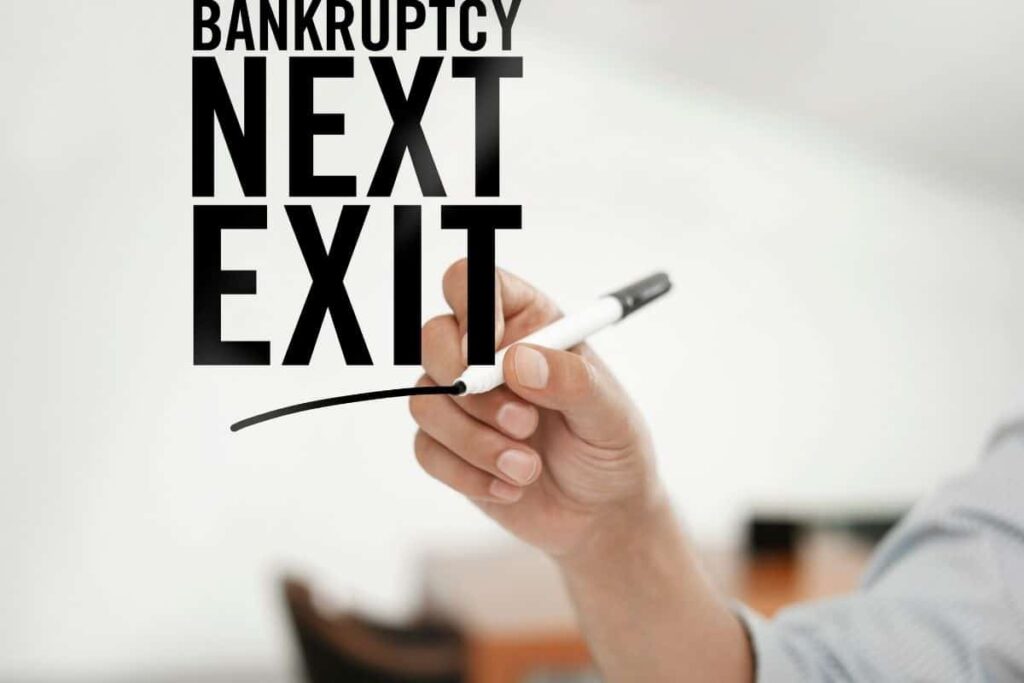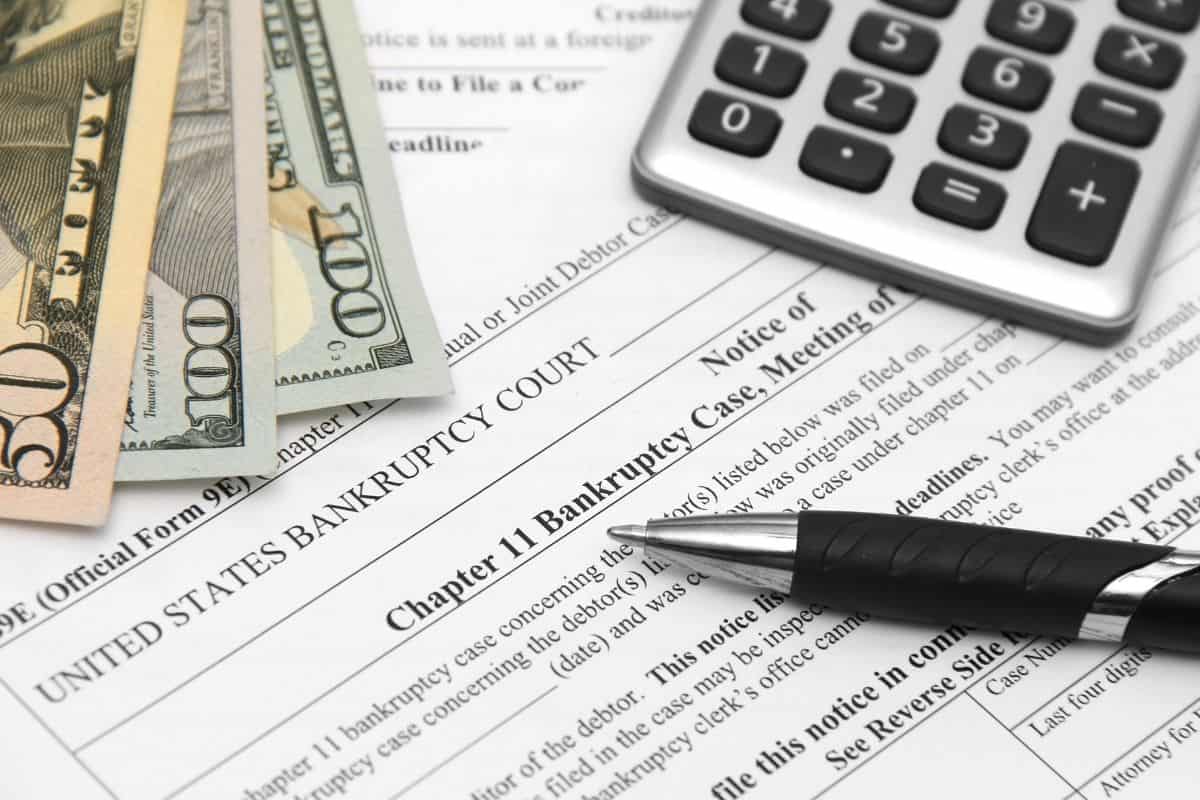Bankruptcy is a process administered by federal bankruptcy courts. It legally helps people and companies erase all or a portion of their debt to help them repay some of what they owe.
Bankruptcy can provide short-term relief, but it will affect your credit score for many years to come. Declaring bankruptcy can stain your credit report for up to 10 years. This will make it difficult for you to open credit card accounts, get approved for loans, and take out mortgages.
Let’s take a closer look at the downsides today to help you learn more about what happens when you file for bankruptcy.
Bankruptcy Fundamentals
Bankruptcy is a complicated process, so the majority of people aren’t prepared for it. You can work with a bankruptcy attorney to make the procedure easier and ensure you’re following all of the rules regarding bankruptcy affairs.
Before you file for bankruptcy, you have to meet a few conditions. These include finishing credit counseling with a government-approved counselor and proving that you can’t repay your debts.
Through counseling, you will discuss your finances, bankruptcy alternatives, and an individual budget plan.
Those that choose to go through with bankruptcy will need to choose what type they’ll file, either Chapter 7 or Chapter 13. Both of these bankruptcy proceedings will aid in erasing unsecured debt, pause repossessions, or foreclosures.
They’ll also halt debt collection, wage garnishments (student loans, alimony, child support), and utility shut-offs.
You will have to pay the attorney and court costs yourself, for both Chapter 7 and Chapter 13 proceedings. These two types of bankruptcy processes both relieve debt differently.
Chapter 7
Otherwise known as straight bankruptcy, Chapter 7 is what goes through most people’s minds when they think of bankruptcy.
Chapter 7 will have a federal court trustee monitor selling your assets. Some of these will be exempt, like cars, essential household furnishings, and work tools. The money gained will pay your creditors off.
After the bankruptcy, the balance owed is erased, but Chapter 7 can’t help you with child support, student loans, alimony, or taxes.
Chapter 7 bankruptcy has several drawbacks. You’re likely to lose any property and the bankruptcy will stay on your credit report many years after you have filed for it.
If you do get into debt afterward, you can’t file again for another eight years.
Chapter 13
Unlike Chapter 7, Chapter 13 bankruptcy lets you keep your property if you repay some or all of your debt. The court and your attorney will work together to create a repayment plan. These normally last between three-five years.
The terms negotiated will dictate how much debt you pay. Once the repayment plan is over and completed fully, your debt is dismissed. This will be the case if you have only paid some of the original debt.
All bankruptcy affects your credit score, but Chapter 13 may be a better decision. Repaying some of your debt allows you to keep some of your assets, like property or businesses.
Chapter 13 bankruptcy will move off of your credit report after seven years, and if necessary, you can file for it again in just two years.
Types Of Debt That Can’t Be Eliminated
Bankruptcy can help you erase some debt, but some types of debt can’t be forgiven. Some of these are:
- Student loans
- Alimony ordered by the court
- Child support that was ordered by the court
- Reaffirmed debt
- Government/court penalties and fines
Bankruptcy Drawbacks

An infamous bankruptcy drawback is losing property. As mentioned above, both Chapter 7 and 13 proceedings can have you sell your possessions to pay creditors. This can involve losing real estate, cars, antiques, and heirlooms.
Bankruptcy can affect other people too. For instance, if your parents co-signed on your auto loan, they will be responsible for some of the sum owed when you file for bankruptcy.
Lastly, as noted before, bankruptcy hurts your credit score. Both Chapters 7 and 13 are thought of as negative points and will affect how lenders see you. A bankruptcy on your report might influence creditors to stop offering your credit.
If they do decide to offer you credit, a bankruptcy might prompt them to give you higher interest rates or a disadvantageous contract.
This negative information can stain your credit report for many years, though this depends on the type that you file. If you have been discharged from an account, your status will be updated and will appear on your file.
Credit Cards And Loans Following Bankruptcy
Bankruptcy can stain your credit file and can affect how easy it is to get credit after you’ve been discharged. Until the information moves off of your report, lenders will be less lenient at giving you credit. They may offer you much higher interest rates and unfavorable terms to lend you any money.
Once you have filed for bankruptcy, you should focus on rebuilding your credit immediately. Pay all of your bills on time, no matter how small. You need to be on guard to ensure you don’t slip back into bad financial habits.
Mortgages Following Bankruptcy
Bankruptcy can affect your ability to get a mortgage. Just like loan creditors, mortgage lenders will often decline your applications.
Any lenders that do accept your appeal may do so with higher fees and interest costs. They may ask you to pay a greater down payment or greater closing costs.
Instead of surrendering your home and attempting to get a new mortgage, consider reaffirming your existing mortgage during the bankruptcy process.
This will let you retain your property, keep paying your existing mortgage, and keep living within your home.
Substitutes For Bankruptcy
Those who are struggling with debt should remember that while bankruptcy is an option, there are alternative procedures to think about.
These options will affect your credit, but not as much as declaring bankruptcy will. Some of these will let you keep your home instead of surrendering it during the bankruptcy process.
These alternative options include:
Asking a government-approved credit counselor for guidance or a debt management plan. This professional can negotiate with your creditors and come up with a feasible repayment plan.
A debt consolidation loan. These loans can turn lots of high interest, expensive debt into one loan with lower interest. Do your research to see if a consolidation loan can lower the debt you pay to make it more practical.
Contact your creditors to ask if they might consider a more feasible repayment plan. Creditors don’t want to see you fail to pay your debt. You may find that they are willing to negotiate an easier repayment process. Keep in mind that settling your debt in this way will negatively impact your credit score.
Failing to pay off the debt in the way you first agreed will affect your credit score. However, bankruptcy will always affect it more than the options above, so it should only be filed as a last resort.
Can A Bankruptcy Request Be Denied?
Personal bankruptcy applications aren’t often rejected, but they can be in some cases.
A huge factor is how much income you make compared to your total debt. One reason a bankruptcy claim can be denied is if an individual lies about their assets or income.
People file for bankruptcy when they genuinely need help and need financial assistance. If a debtor tries to hide his assets or yearly income, their bankruptcy can be denied once this is found out.
These claims can be denied for technical issues too. If paperwork isn’t filed correctly or if there are timing issues, a bankruptcy petition can be denied.
If you are filing for bankruptcy, be as genuine and honest about your finances as you can. It’s always best to have a lawyer deal with the proceedings so you don’t create any errors.
The Bottom Line
Bankruptcy should only be viewed as a last resort, as it can have negative effects later on in your life. Both Chapter 7 and Chapter 13 bankruptcies can stain your credit report, making it difficult to get credit cards, loans, and mortgages.
No matter what debt relief you seek, you can start working on your credit by making good financial decisions. Try to pay your bills on time, keep to a budget, and don’t take on any extra debt.
If you do decide to go through bankruptcy, ask for guidance from a credit counselor beforehand. There may be an alternative debt relief option that you may have missed.
